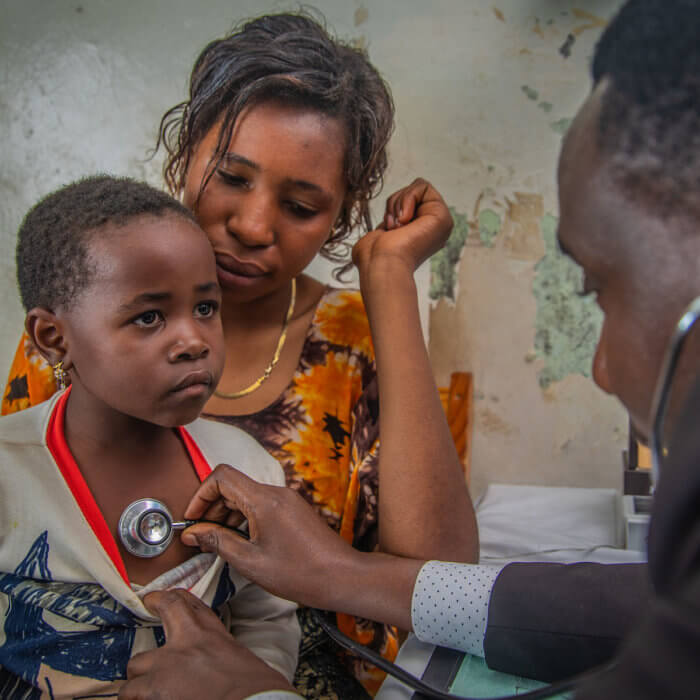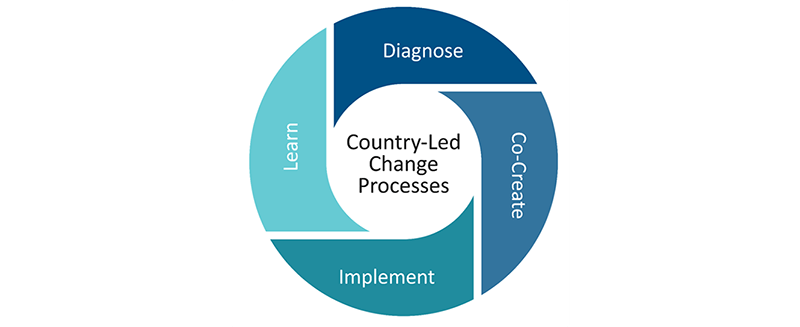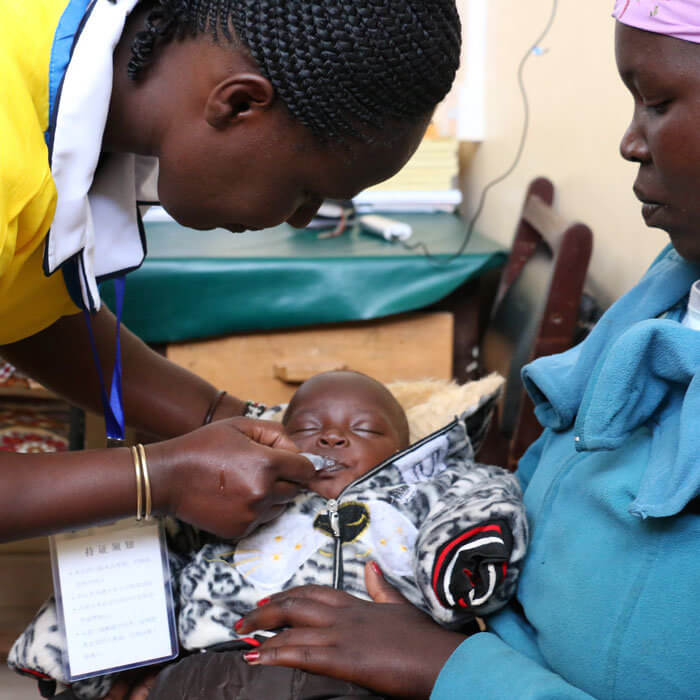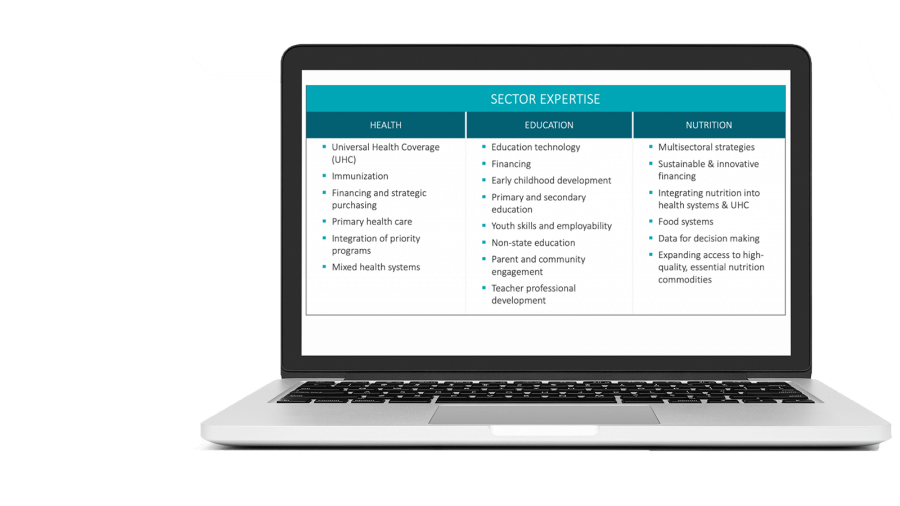How we support change agents to achieve results for development
At Results for Development, we believe achieving large-scale, lasting, equitable outcomes in health, education and nutrition, will only be realized by putting change agents — government officials, civil society leaders and social innovators — at the center of our approach.
The change agents we work with have told us they want to drive their own agenda and design their own solutions, while receiving targeted expert support. They want partners who will support them to address immediate challenges today and strengthen institutional capacities and processes to address tomorrow’s challenges. Our approach is in direct response to this.
Our approach
Achieving large-scale, lasting results is not easy. The systems required to produce these outcomes are complex and always changing. Sustainability is difficult.
Working with our partners over the last decade, we’ve learned a lot about how to achieve these kinds of results. The graphic below illustrates key aspects of our theory of change. We design all programs – no matter how big or small — with this model in mind.
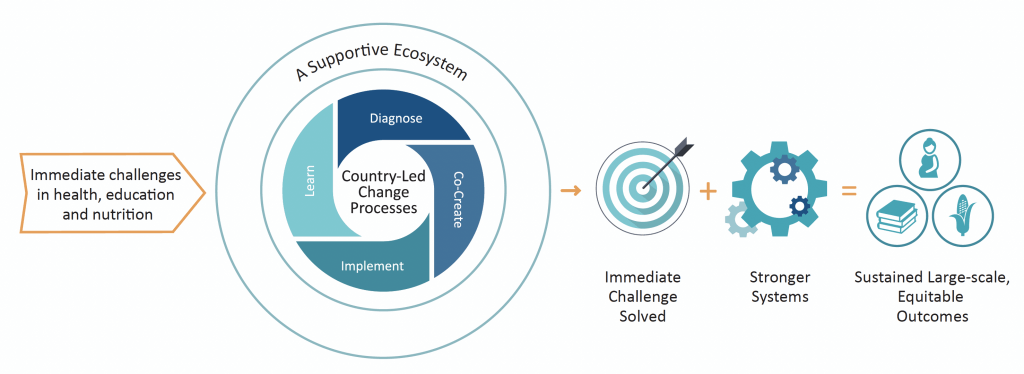
We support country-led change in two ways
- We provide direct support to country stakeholders as they navigate complex systems- change, and
- We strengthen the ecosystem that provides critical evidence, expertise and innovations to country leaders.


